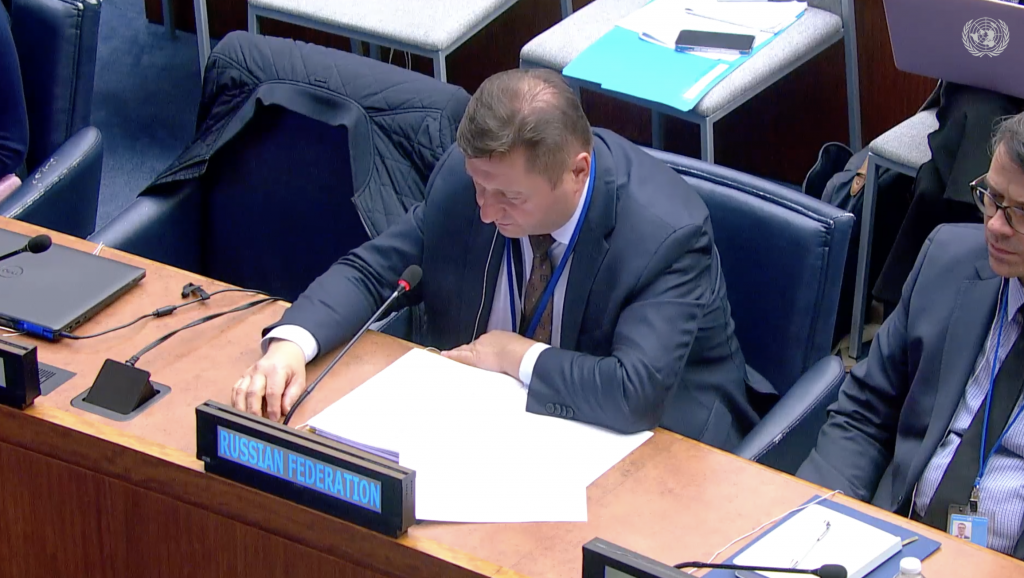Statement by Mr. Andrey Belousov, Deputy Head of the Delegation of the Russian Federation, in explanation of position on the draft resolution “Programme of Action to advance responsible State behaviour in the use of ICTs in the context of international security” in the First Committee of the 78th Session of the UNGA
Mr. Chair,
We would like to take the floor to explain our position on the draft resolution L.60 on the Programme of Action (PoA). We see this document as yet another attempt of the Western countries to undermine the UN Open-ended Working Group (OEWG) on security of and in the use of ICTs 2021-2025. The submission of the draft resolution on the PoA this year clearly exposes their real attitude towards the existing format. Their goal is to finish up the Group – once and forever – and replace it with another mechanism that is comfortable for them, in which a narrow circle of States would be able to impose their will on the remaining majority through a non-consensual decision-making mechanism. It is consensus in the OEWG that allows all States to participate in the negotiations on information security on an equal basis. The French document prudently lacks any relevant provision.
Throughout the whole session of the First Committee we have not received a clear answer to a simple question: what is the real purpose of the draft resolution L.60? Why right now, two years before the end of the OEWG’s mandate, shall put one of the aspects of its agenda for consideration by the UNGA and decide to create any mechanism that will succeed the Group after 2025? We do not see any reason to first create some format and only then determine what and how it will do, what goals it will pursue, how it will make decisions and where it will get funding from. The cosmetic revisions introduced in the draft resolution do not change its unacceptable essence: whatever States decide in the OEWG, the PoA will still be established.
We understand that the very proposal for a Programme of Action may seem attractive, especially as Western countries promote it under the benevolent pretext of building digital capacities of States. We share this objective. However, it is worth noting that the text of the French document does not contain any specific recommendations on this matter.
I would like to stress once again: we are ready to discuss the PoA within the framework of the OEWG in accordance with its mandate and the recommendations of the annual reports. In our view, this initiative requires a thorough consideration, taking into account the opinions of all States. At least because it sounds irrational, to put it mildly, to speak about the creation, in 2025, of a mechanism for the implementation of voluntary norms developed in 2015.
We believe that the period until 2025 is more than sufficient to jointly elaborate a decision on the future most appropriate format for negotiations on international information security under the UN auspices. We assume that any mechanism should be future-oriented, should take into account the developments in the field of ICTs, and provide for the possibility of developing new norms.
The current actions by France and the US contradict common sense and are clearly motivated by purely political interests. By insisting on the adoption of the draft resolution on the PoA this year, they have already provoked a division even among the original co-authors of this initiative, distorted the constructive idea of the Egyptian partners. It is fundamentally important that Paris and Washington fully understand their responsibility for breaking the hard-earned consensus that the global community managed to achieve. This step will not contribute to strengthening security in information space, but will only exacerbate contradictions, sow discord within the negotiation process, and draw new dividing lines. The Russian Federation will vote against the document L.60.
Thank you for attention.
